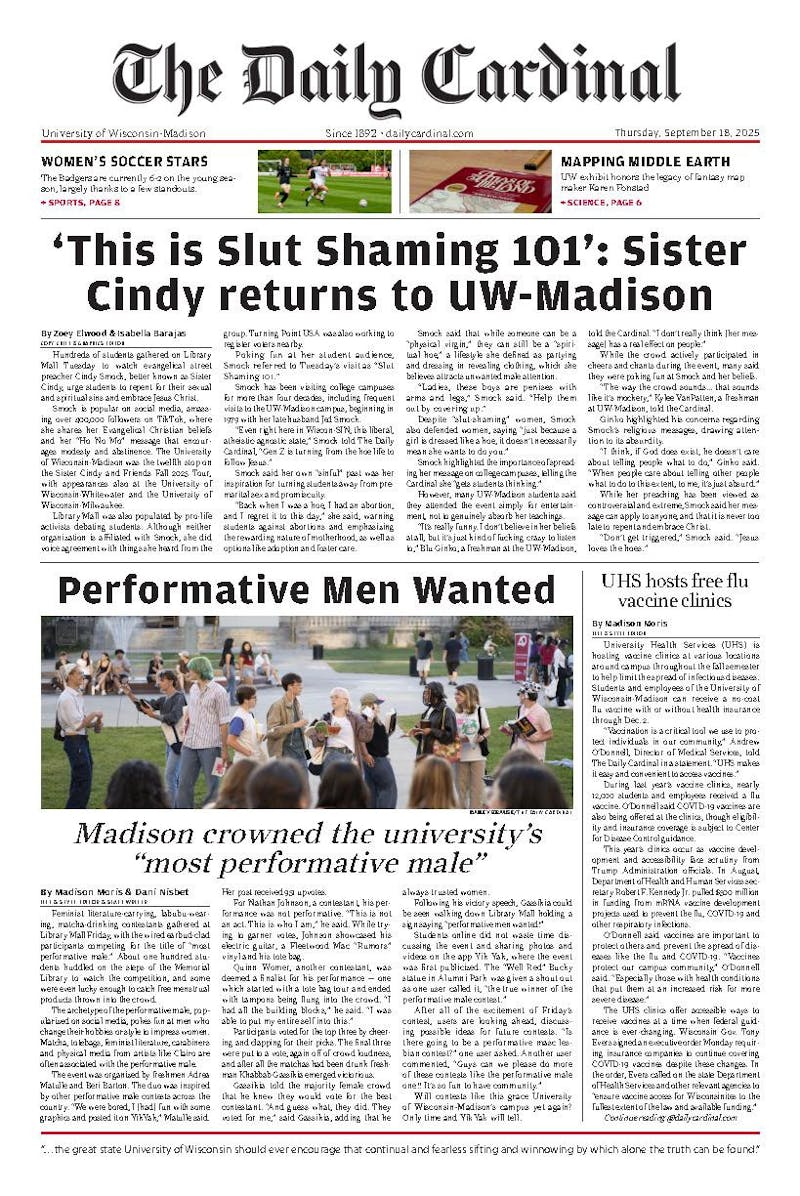“Walls” seems to be the word on everyone’s lips as of late when discussing immigration. Frankly, Jason de León is tired of talking about them.
De León, an associate professor of anthropology at the University of Michigan and recent MacArthur “Genius” Grant recipient, spoke specifically about the lives, journeys and deaths of migrants in his talk at Memorial Union’s Shannon Hall on Thursday. The event was hosted by Wisconsin Union Directorate as part of its Distinguished Lecture Series.
“Just as a warning, I’m going to talk about some very difficult-to-hear things and show you some potentially difficult images to look at,” de León warned at the start of his talk. “But that is the reality of this humanitarian crisis, so we’re not going to look away. We’re going to look directly at the horror that is currently going on.”
Through a combination of statistics, his own research and personal anecdotes from working and talking with migrants and their families, de León illustrated the reality of journeying through rough terrain while migrating across the Mexican-American border.
De León, a trained archaeologist, uses his skills in his work on the Undocumented Border Project. Through this project, de León searches for documents and analyzes the remnants of what he calls “migrant stations,” or areas of belongings that migrants shed before continuing with their journey. Doing this, he said, helps to better understand the process of undocumented border crossing.
According to de León, the Smithsonian Institution now has many of these objects on permanent display in Washington, D.C.
“We’ve been making this case for almost ten years that this is our shared history,” de León said. “Whether you like migrants or not doesn’t matter. This is our history, and this is the archaeological record of it.”
De León also placed great emphasis on what he called the American government’s brutal treatment of migrants crossing the desert en route to the U.S.
“We have a border wall. We have a wall that’s the Arizona desert, it’s the south exit backwoods, it is nature itself, and the deaths that happen on the ground, the migrant deaths, these are not unintended consequences,” de León said. “We use federal policy to kill people. The federal government uses policy to kill people.”
De León spoke specifically about Prevention Through Deterrence, a government policy that, according to de León, relies on the natural forces of the Sonoran Desert to deter or kill migrants before they reach the U.S.’s currently sub-par border walls.
According to de León, one government document explicitly states that an increase in the deaths of migrants would indicate success with the program.
“As a country, as a government, we think that migrants are expendable. We think that their lives do not matter, that killing them and dying in the desert is the cost of enforcement,” de León said.
Through a series of anecdotes, de León told the stories of unnamed corpses, unidentified human remains and hopeful migrants returned to families in caskets or lost in the desert.
According to de León, past attendees of his talks have questioned his use of the images of death and decay he presents to illustrate the realities of the desert. But he believes it is important to show the brutal reality of Prevention Through Deterrence.
“These types of deaths in the Sonoran Desert are not supposed to be dignified. That’s the point.” de León said. “This is what Prevention Through Deterrence looks like, and perhaps the only dignity in these deaths is the dignity the comes with dying trying to improve the life of your family and yourself.”






